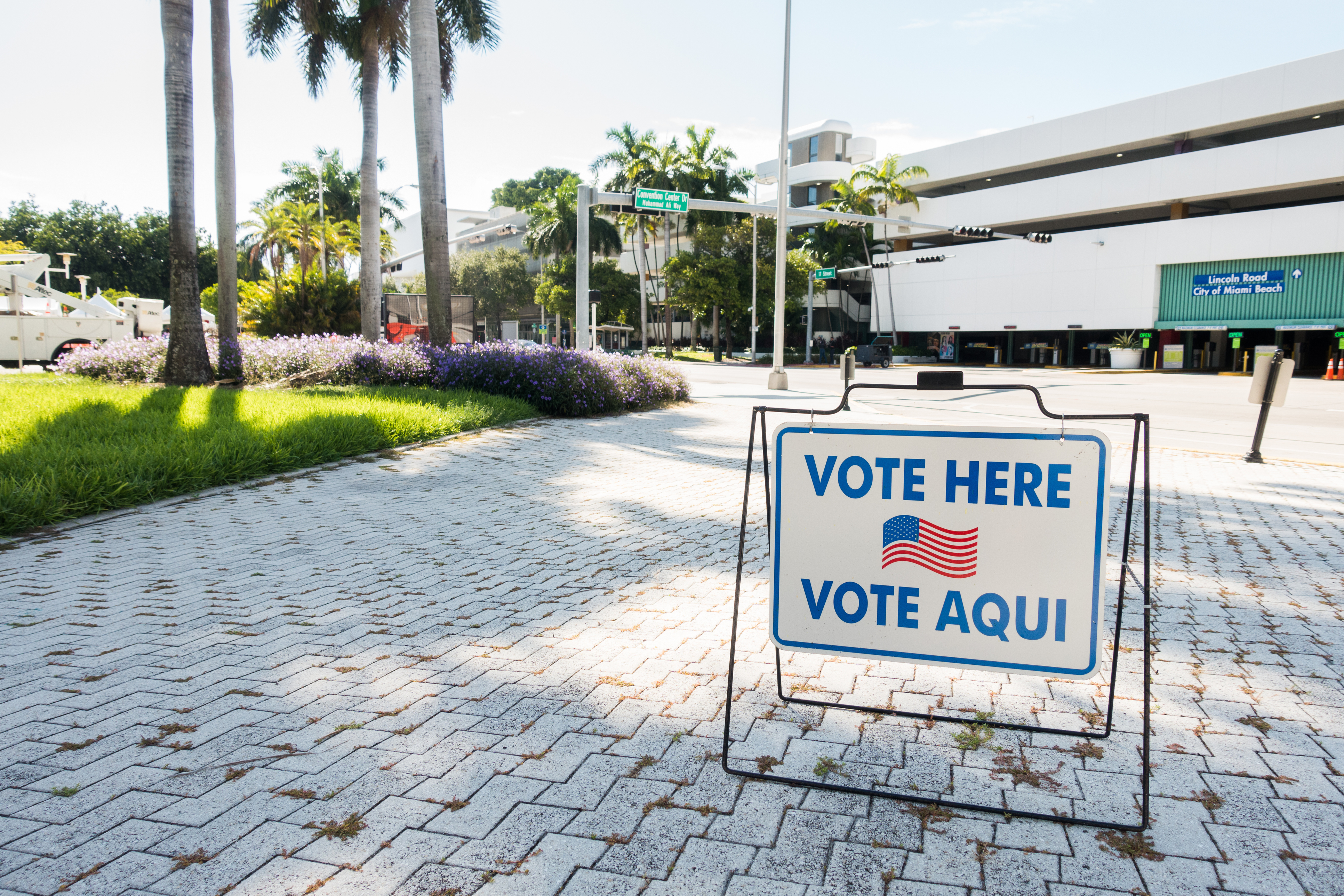Mobilizing the Hispanic Vote in the 2024 Election
By Kenneth Romero-Cruz, Executive Director of NHCSL

Polling place in Miami, FL
Download the 2024 Spring Edition of NHCSL's Newsletter here.
The potential impact of eligible Hispanic voters on determining government representation keeps growing. Approximately 36.2 million Latinos are eligible to vote this year, up from 32.3 million in the last Presidential Election. According to the Pew Research Center, 14.7% of all eligible voters nationwide will be Hispanic by November of this year.
This increment will be mostly felt in states with crucial toss-up races like California, Texas, Florida, New Mexico, Nevada, and Arizona, where Latino eligible voters already make up over 20% of the electorate.
However, according to the same study, Latinos “are less likely than Americans overall to be eligible to vote (53% v. 72%).” This is partly because the Hispanic population includes people who are too young to vote or who are not U.S. citizens: 29% of Latinos are under 18, compared to 22% of the U.S. overall.
While many Latino organizations and elected officials are highly involved in voter mobilization and have advocated for higher engagement from political parties, more often than not the investment and outreach from the parties fall short and leave voters with the feeling that they are an afterthought, or that their votes are taken for granted.
This lack of sustained investment is highly damaging to our democracy. Even though voter mobilization falls heavily on c4 organizations and political parties and campaigns, elected officials, and organizations like NHCSL can do to increase Hispanic civic and voting participation, especially from those who are disconnected from politics.
The 2023 National Survey of Latino Voters, conducted by UnidosUS, identified the economy as the top issue for Hispanics. Economic disparities, such as lack of access to affordable housing, higher unemployment rates, and the Latina wage gap, to name a few, could remain unaddressed if Latino voter turnout is low. New research from the Urban Institute shows that the average wealth gap between white and Hispanic families exceeded $1 million in household wealth in 2022. Without the political pressure generated by active Latino participation, policymakers may not prioritize initiatives aimed at reducing these economic inequalities.
Access to reproductive healthcare, including abortion, was also one of the top three concerns for Hispanics, regardless of their personal beliefs around birth control and abortion. As we have seen since the Dobbs decision, state legislatures have a pivotal role in protecting – or restricting – access to comprehensive reproductive care. In states like Florida and Arizona, where abortion bans have gone into effect in the past few weeks, the Latino vote this November could decide whether or not reproductive rights get restored.
You, the members of our Caucus, can be the catalyst that unleashes our collective power. You are living testament of what Hispanic communities can achieve when Latino voters stand behind elected officials that put our interests front and center. For example, Colorado has seen a 21% increase in voter participation (56% to 68%), thanks in part to a substantial increase in Latino voter engagement. At the same time, the number of Hispanic state legislators has doubled, which made policies such as the “for cause” eviction law, spearheaded this year by Rep. Javier Mabrey, Sen. Julie Gonzales, and the Colorado Latino Caucus, a reality and an effective way to guarantee that families will keep a roof above their heads.
If the sleeping giant of the Latino vote awakens, we’re going to keep seeing better policies materialize nationwide for our communities in a sustainable and consistent way and see our representation increase and achieve its full potential. We are excited to keep working towards this goal and further represent Latino interests at all levels of government.
